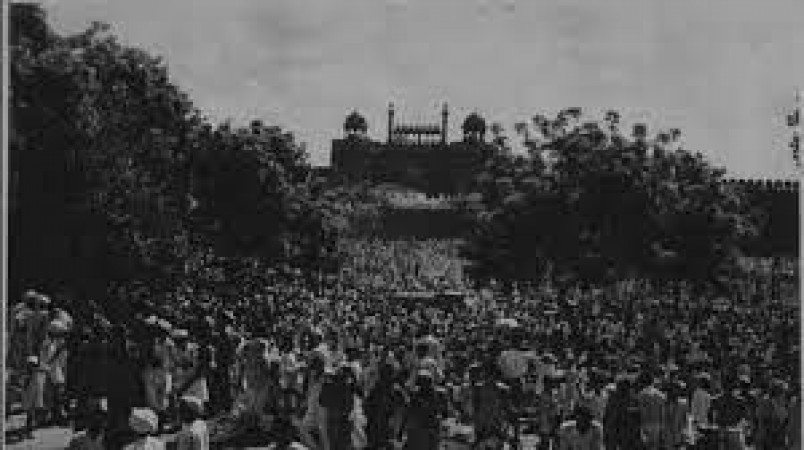
The freedom struggle of any nation is a testament to the indomitable spirit of its people and the relentless pursuit of liberty. Throughout history, many remarkable individuals have emerged as great heroes, leading their countries toward independence and social justice. In this article, we will delve into the lives of some of these extraordinary figures who played pivotal roles in shaping the course of freedom struggles around the world.
1. Mahatma Gandhi: The Father of India's Independence
Mohandas Karamchand Gandhi, fondly known as Mahatma Gandhi, was an iconic leader in India's struggle for freedom from British colonial rule. His philosophy of non-violence and civil disobedience, known as Satyagraha, became the cornerstone of the Indian independence movement. Gandhi's unwavering commitment to truth, justice, and human rights inspired millions to join the freedom struggle.
1.1 Early Life and Experiences
Born in 1869 in Porbandar, Gujarat, Gandhi studied law in London and later practiced in South Africa. It was during his time in South Africa that he first witnessed the discrimination faced by the Indian community, igniting his passion for justice and equality.
1.2 The Salt March and Civil Disobedience
One of the most significant events in India's freedom struggle was the Salt March, where Gandhi and his followers walked 240 miles to protest the British salt tax. This act of civil disobedience gained international attention and further strengthened the resolve of the Indian people.
2. Nelson Mandela: Champion of South African Freedom
Nelson Mandela, an anti-apartheid revolutionary and politician, was the driving force behind South Africa's liberation from racial segregation and oppression. He endured 27 years in prison, emerging as a symbol of hope and reconciliation for his nation.
2.1 The Fight Against Apartheid
Mandela's commitment to ending apartheid led to his imprisonment, but it only fueled the global outcry against South Africa's racist policies. His release from prison in 1990 marked the beginning of a new era for the country.
2.2 A Beacon of Reconciliation
After becoming South Africa's first black president in 1994, Mandela championed reconciliation and unity among the racially diverse population. His efforts to build a democratic and inclusive nation earned him worldwide admiration.
3. Martin Luther King Jr.: The Voice of Civil Rights
Martin Luther King Jr. was a prominent leader in the African American civil rights movement in the United States. His advocacy for nonviolent resistance and equality transformed the American social and political landscape.
3.1 The Montgomery Bus Boycott
King's leadership during the Montgomery Bus Boycott, a protest against racial segregation on public transportation, galvanized the civil rights movement and highlighted the power of peaceful resistance.
3.2 "I Have a Dream" Speech
King's famous speech during the March on Washington in 1963 remains one of the most iconic moments in history. His vision for a future where people are judged by their character, not skin color, resonated deeply with millions.
4. Aung San Suu Kyi: Champion of Burmese Democracy
Aung San Suu Kyi, a Nobel Peace Prize laureate, devoted her life to the struggle for democracy and human rights in Myanmar (formerly Burma). Despite facing house arrest and oppression, she remained a symbol of resistance against the military junta.
4.1 Decades of House Arrest
For over 15 years, Aung San Suu Kyi was under house arrest, separated from her family and the world. Her resilience and determination drew attention to the plight of the Burmese people and their fight for democracy.
4.2 A New Chapter for Myanmar
In 2015, Aung San Suu Kyi's party won the first openly contested elections in Myanmar, marking a significant step toward democratic governance. However, her leadership faced criticism for handling the Rohingya crisis.
5. Subhas Chandra Bose: The Fearless Indian Nationalist
Subhas Chandra Bose, also known as Netaji, was a fearless nationalist leader who played a vital role in India's fight for independence. He led the Indian National Army (INA) and sought support from other countries to end British rule in India.
5.1 Formation of the INA
Bose's decision to form the INA and align with the Axis powers during World War II aimed to secure India's freedom through armed struggle. His slogan "Give me blood, and I will give you freedom" ignited patriotism in many.
5.2 The Mystery Surrounding His Disappearance
Bose's sudden disappearance in 1945 remains shrouded in mystery, with various theories circulating about his fate. His legacy, however, continues to inspire generations of Indians in their pursuit of freedom. The biographies of these great heroes of freedom struggle reveal their unwavering dedication, resilience, and vision for a better world. Their actions not only impacted their respective nations but also influenced movements for justice and equality worldwide. Their stories remind us that the struggle for freedom is a collective endeavor that demands courage and commitment. As we honor their legacies, we must strive to uphold the values they championed – justice, equality, and the indomitable human spirit.
The Evolution of Art: Tracing the Journey from Ancient Civilizations to Modern Times
Empowering Your Mindset: 15 Tips for Personal Growth
Tech Marvels: The Astounding Discoveries Shaping Our Tomorrow